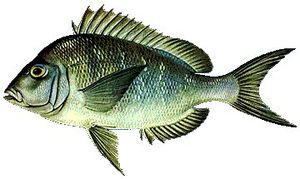Annotation:Scups Come: Difference between revisions
No edit summary |
m (Text replacement - "Century Gothic" to "sans-serif") |
||
| Line 7: | Line 7: | ||
---- | ---- | ||
<div style="page-break-before:always"></div> | <div style="page-break-before:always"></div> | ||
<p><font face=" | <p><font face="sans-serif" size="2"> | ||
<div style="text-align: justify; direction: ltr; margin-bottom: 90px; margin-left: 70px; margin-right: 120px;"> | <div style="text-align: justify; direction: ltr; margin-bottom: 90px; margin-left: 70px; margin-right: 120px;"> | ||
<br> | <br> | ||
| Line 17: | Line 17: | ||
<div class="noprint"> | <div class="noprint"> | ||
== Additional notes == | == Additional notes == | ||
<p><font face=" | <p><font face="sans-serif" size="2"> | ||
<font color=red>''Source for notated version''</font>: - | <font color=red>''Source for notated version''</font>: - | ||
<br> | <br> | ||
<br> | <br> | ||
</font></p> | </font></p> | ||
<p><font face=" | <p><font face="sans-serif" size="2"> | ||
<font color=red>''Printed sources''</font> : - Laybourn ('''Köhlers' Violin Repository Book 2'''), 1881-1885; p. 175. | <font color=red>''Printed sources''</font> : - Laybourn ('''Köhlers' Violin Repository Book 2'''), 1881-1885; p. 175. | ||
<br> | <br> | ||
<br> | <br> | ||
</font></p> | </font></p> | ||
<p><font face=" | <p><font face="sans-serif" size="2"> | ||
<font color=red>''Recorded sources'': </font> <font color=teal> - </font> | <font color=red>''Recorded sources'': </font> <font color=teal> - </font> | ||
</font></p> | </font></p> | ||
Revision as of 20:02, 6 May 2019
X:1 T:Scup’s Come M:2/4 L:1/8 R:Reel B:Coes Album of Jigs and Reels, something new, for professional and amateur violinists, B:leaders of orchestras, quadrille bands, and clog, reel and jig dancers; consisting of a B:Grand Collection of entirely New and Original Clog-Hornpipes, Reels, jigs, B:Scotch Reels, Irish Reels and Jigs, Waltzes, Walk-Arounds, etc. (1876, p. 31) N:Coes performed with the San Francisco Minstrels in California from 1852 to 1859. Z:AK/Fiddler’s Companion K:D B,|DF/E/ D/F/A/c/|d/c/d/f/ e/c/A/F/|G/B/E/G/ F/A/D/F/|G/F/E/D/ C/E/A,/C/| DF/E/ D/F/A/c/|d/c/d/f/ e/c/A/F/|G/B/E/G/ F/A/D/F/|E/D/C/E/ D:| |:A,|A,/B,/C/D/ E/F/G/E/|F/D/E/F/ G/A/B/c/|d/c/d/A/ c/d/e/f/|g/f/g/e/ d/c/B/A/| d/e/f/d/ c/e/A/c/|d/c/d/B/ A/F/D/F/|G/B/E/G/ F/A/D/F/|E/D/C/E/ Dz:|]
SCUPS COME. AKA and see "Bennett's Favorite," "Great Eastern Reel (1)," "John Brennan's Reel (1)," "Grondeuse (1) (La)," "O'Byrne's Fancy," "Silver Spire (The)." Scottish, Reel (cut time). D Major. Standard tuning (fiddle). AABB. "Scups come" is a term fisherman once used to announce the coming of the migrating ocean fish called the scup or porgy [1]. The passage is from the Greencastle Herald, Greencastle, Putnam County, Indiana of the 29th of November, 1909, in a piece about the fisherman of New England and Long Island: "...the fisherman watch the dandelions. When the buds are swollen full and are ready to burst into bloom the fishermen rejoice and say. 'Now scups come!' and they put in their traps for this abundant, profitable and universally popular fish, for scup is the porgy of commerce."

